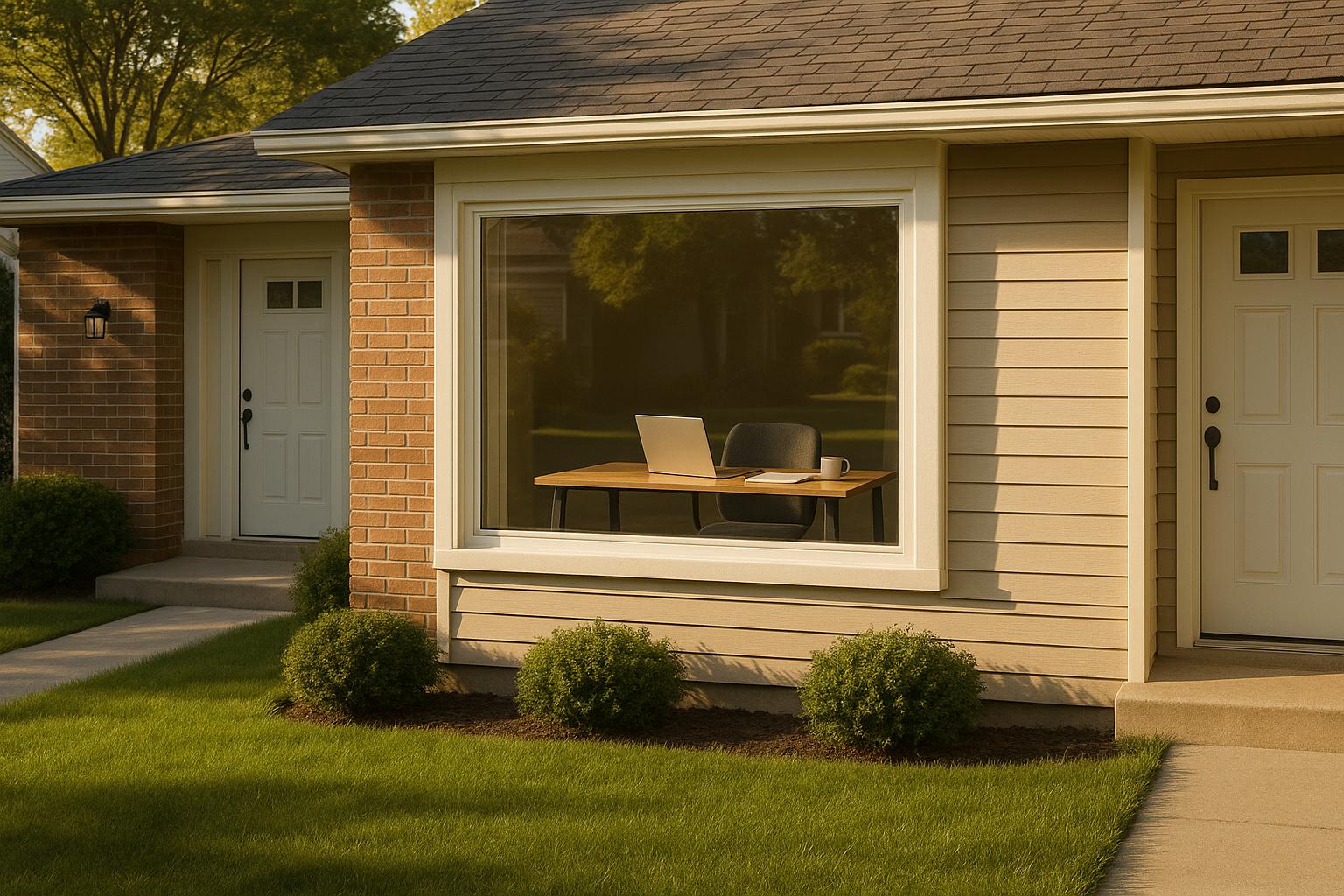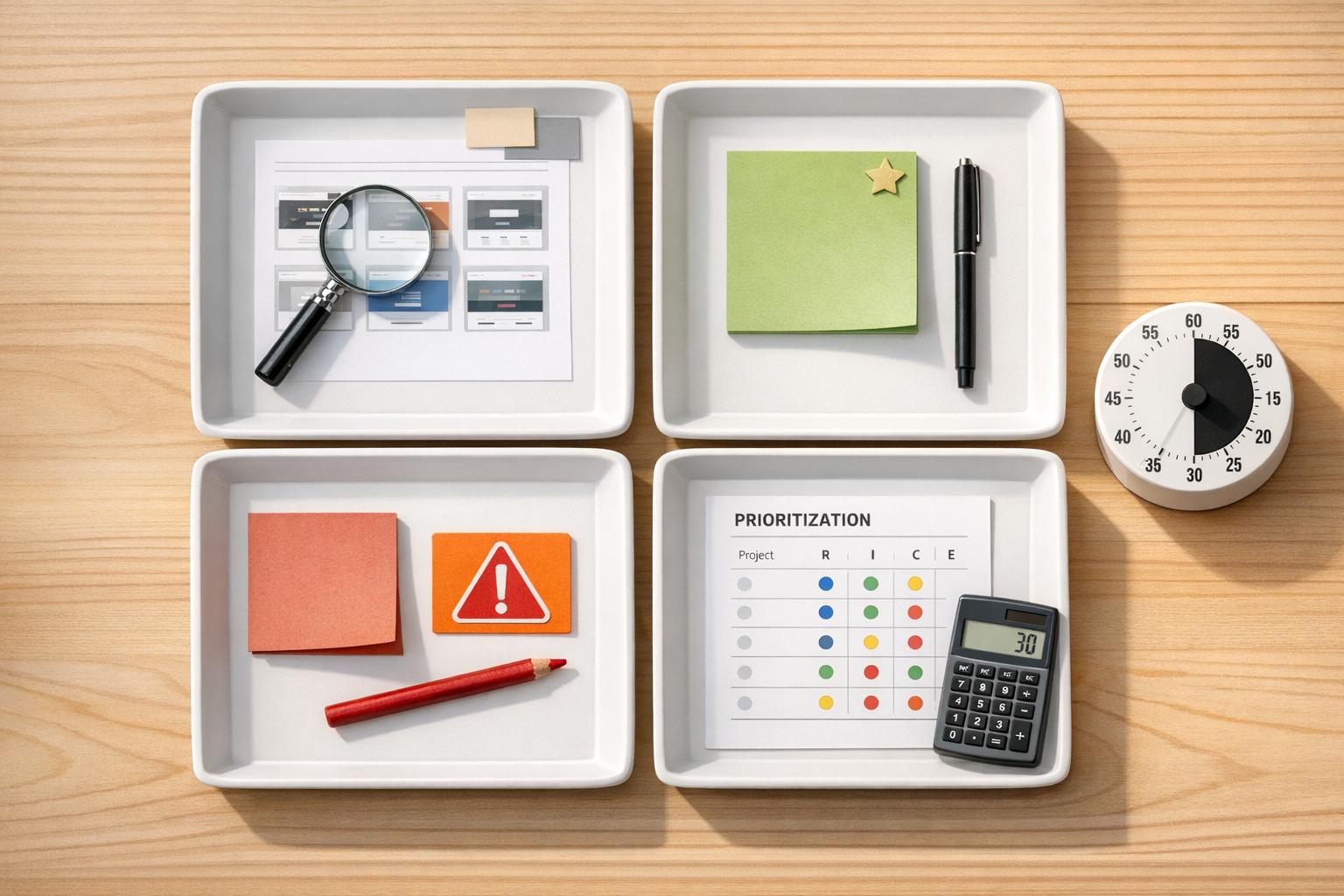
When starting a home-based business, the first thing to check is your local zoning rules. These rules determine whether you can legally operate a business from your residential property. Here's what you need to know:
- Zoning Laws Basics: Residential zones often restrict business activities that generate noise, traffic, or disrupt the neighborhood. However, quiet, low-impact businesses like consulting, teaching, or online services are usually allowed.
- Common Restrictions: Local rules may limit parking, visitor traffic, signage, or the percentage of your home used for business.
- Permits and Permissions: Many cities require home occupation permits or special-use permits. If your business doesn't fit standard rules, you might need to apply for a variance.
- Local Variations: Zoning laws differ by city and county, so always check your specific area's regulations before starting.
To stay compliant, visit your local government website or contact the zoning department. If you're unsure, consulting with a zoning attorney can help you navigate the rules and secure the necessary permits.
Can You Run A Business On Residential Property? - BusinessGuide360.com

Usual Rules for Home Jobs
Many places have rules on jobs done from home to keep the quiet feel of living areas. Know these rules to keep away from law issues.
Jobs You Can't Do at Home
Most living areas say no to jobs that can break the calm of a place. Jobs like making goods or running a store are often not okay in these parts. Auto repair places are also not okay often. Spots like clubs or food spots are kept for business areas to stop noise and other fuss.
"The main rationale behind prohibitive or restrictive zoning laws is to maintain the residential character of a neighborhood." – Wolters Kluwer
In some rich places, any work, big or small, may be fully stopped. Also, works that need loud tools or handle chemicals can have extra rules. This is due to their effects on nature and peace in the area. Apart from total stops, other laws on traffic, where to park, and how loud things can be, also control what at-home work is okay.
Rules on Traffic, Parking, and Noise
Zoning laws set limits on how much traffic and parking a home work can bring. For example, in Florida, a rule says that parking for a home work must not be more than a usual home. Also, many places say home works must have parking off the street for visitors, and any work cars must be parked right - not on public paths or spaces.
Noise is also a big focus. Rules are there to make sure home work does not make more noise than a usual home. Some local places limit work hours or the number of visitors from outside to keep the area nice. If a work makes too much noise late at night or a lot of traffic, it might be stopped. These rules, with others on the type of work, keep the place quiet and neat.
Limits on Signs and Ads
To keep houses looking nice, many zoning laws control work signs and ads. These rules limit how big, where, and how clear signs can be. This makes sure a home work does not harm the look of the area. Such steps also protect home prices and the feeling of being part of a community in living areas.
Jobs Often OK in Home Areas
Zoning laws can stop some jobs from being in home areas. Yet, many jobs you do from home are fully okay if they don't bother the rest. The main point is to pick a quiet, small job that fits well with home life. Let’s look at some job types that usually work.
Quiet Job Types
Jobs that keep a home area quiet are normally fine. Jobs like having a law office, dentist’s office, doctor's chats, music teaching, photo studios, and making cabinets often get the green light from local rules. These jobs make little noise and don't bring many people walking around.
Modern home jobs like writing, giving advice, and making designs also follow home area rules. These computer jobs are quiet, need few tools, and don't often have guests over. Many rules use wide terms like “jobs and home crafts, or services” to cover these quiet works.
Web and Online Sales Jobs
Jobs online are also good for home areas. These jobs are all in the web space, so they naturally fit home rules. Selling crafts online, shipping orders, or web marketing advice usually pass area rules. Many places know that running an online shop or web service doesn't bother your neighbors.
Still, little online shops must not do things that get folks looking, like keeping lots of stock or having many deliveries. Jobs like virtual help, making websites, and running social media are perfect for home areas as they just need the web and a computer.
Service Jobs
Personal services that don’t need big machines often get a yes for home areas. For instance, teaching at home is a liked pick - you keep it quiet, don’t have many visitors, and keep the home feel. Making small jewelry or art works is also often OK if it stays small.
Virtual help and giving advice in many areas also blend well into home zones. These jobs use tools like emails, phone calls, and online sites, making almost no mark on the area.
sbb-itb-08dd11e
How to Check Zoning Rules for Your Home Business
Before starting a home business, it’s crucial to check your local zoning rules to avoid potential fines or even a forced shutdown.
Find Your Local Zoning Laws
Start by visiting your city or county government website. Look for sections labeled "zoning," "planning," or "municipal code." These areas usually contain zoning ordinances and any specific restrictions that might apply to home businesses.
If the information isn’t available online, head to your local city hall or county courthouse. The planning department can provide zoning maps and detailed regulations. Taking the time to review these resources ensures you’re aware of any rules that may impact your business.
Many cities also have interactive zoning maps where you can simply enter your address to see your property’s zoning classification. This is an easy way to get a quick overview of local restrictions. Once you’ve identified your zoning designation, reach out to local authorities to get specific guidance tailored to your business.
Contact Local Government Offices
Get in touch with your city’s planning or zoning department to discuss your business plans. These officials are well-versed in zoning regulations and can provide the clarity you need.
For example, the Governor’s office in Texas recommends contacting local city and county governments to understand the requirements for starting a home-based business. If you’re unsure about whether your business complies with zoning laws, speaking with local officials is a smart step.
When you connect with them, ask about home occupation permits. Many areas require these permits to confirm that your business aligns with zoning rules. If your business activities don’t fit neatly into existing categories, inquire about the process for applying for a variance. Once you’ve clarified the requirements, you’ll be ready to move forward with securing the necessary permits.
Apply for Permits or Special Permissions
Even if your business type is allowed in a residential area, you’ll likely need a permit to operate. The most common requirement for home businesses is a home occupation permit.
Permit applications typically ask for details like the number of employees, expected visitor traffic, and the equipment you’ll use. If your business doesn’t meet standard allowances, you may need to apply for a variance. Otherwise, you’ll simply complete the application, pay the required fee, and schedule any necessary inspections.
After reviewing your local zoning rules, consider consulting with an attorney who specializes in small business law. They can help you navigate any uncertainties and ensure you’ve identified all the permits, licenses, or variances your business might need.
Options When Zoning Rules Block Your Business
Running into zoning restrictions while trying to start your home-based business can feel discouraging, but don’t give up just yet. There are several ways to work around these challenges and legally get your business off the ground. Here are three strategies to consider when zoning rules stand in your way.
Apply for Zoning Changes or Special Permits
If your business doesn’t align with the usual home occupation rules, you might still have a chance by applying for special permissions. Local governments often offer options like conditional use permits or special-use permits, which allow exceptions for businesses that don’t typically fit residential zoning regulations. To apply, you’ll need to submit detailed business plans and show that your operations won’t disrupt the neighborhood.
If your request is denied by the planning or zoning board, don’t lose hope. You can appeal the decision to a higher authority, such as the city council or county board of supervisors. Sometimes, it’s even possible to push for an amendment to restrictive zoning ordinances through your local government.
Consider Different Business Locations
Not all businesses are a good match for residential areas, especially if they involve hazardous materials, heavy machinery, large inventory storage, or generate significant traffic. In these cases, moving to a commercial or industrial zone might be your best bet. Look into spaces like commercial districts, industrial parks, or mixed-use developments that can accommodate your needs more effectively.
Get Professional Help
Zoning laws can be tricky to navigate, and this is where professional guidance can make all the difference. An attorney who specializes in zoning law can help you understand your options and guide you through the process of obtaining permits, licenses, or variances.
"Once you have completed your initial review, you should consult with an attorney about any questions you may have. An experienced attorney will help you identify potential zoning issues, and assist you in obtaining any necessary permits, licenses, and/or variances that may be required."
If your application is denied, a lawyer can assist with filing an appeal or even help you work toward amending restrictive zoning ordinances. When the process feels overwhelming, having expert advice can save you time and stress.
Conclusion: Main Points for Business Owners
Understanding zoning rules is a critical step in setting up and running a successful home-based business. Staying compliant with these regulations not only safeguards your business but also ensures harmony within your neighborhood.
Know Your Zoning Laws
The first step is thorough research. Zoning laws can differ widely depending on your city or county, with some areas allowing certain activities while others prohibit them entirely. These rules can be simple or highly detailed, so it’s essential to carefully review your local ordinances.
You can usually find zoning ordinances on city or county websites or by visiting local government offices. If anything is unclear, reach out to your local planning department or zoning board for clarification.
Pick the Right Business Type
Choose a business model that aligns with residential zoning restrictions. Low-impact businesses - like online services, consulting, or creative work - are typically more suitable for residential areas. Avoid operations that could disrupt the neighborhood, such as those involving heavy equipment, hazardous materials, or high customer traffic.
Before finalizing your business idea, check how it fits within zoning rules regarding space usage, employee limits, delivery schedules, and noise levels. Once you’ve selected a compliant business type, secure the necessary permits and licenses to operate legally.
Plan Ahead and Follow Rules
It’s always easier to plan for compliance than to fix issues later. Obtain all required permits before starting your business, and address potential neighborhood concerns by managing traffic, parking, noise, and signage. Maintaining good relationships with neighbors can go a long way.
Keep in mind that zoning laws aren’t your only consideration - homeowners’ associations, planned development rules, and lease agreements may impose stricter conditions. If your business doesn’t align with standard home occupation rules, look into conditional use permits or variances as potential solutions. If the process feels overwhelming, consulting a zoning attorney can provide clarity and guidance.
FAQs
What should I do if my home-based business doesn't comply with local zoning laws?
If your home-based business doesn’t align with local zoning rules, there are steps you can take to address the issue. One option is to apply for a zoning variance or a special use permit through your local planning or zoning board. These permits can grant exceptions to the standard regulations under certain conditions.
If that route isn’t available, another possibility is working with local authorities to amend the zoning ordinance. This typically involves submitting a formal request and participating in public hearings. To navigate these processes, it’s essential to consult your city or county's zoning office for detailed guidance on the requirements and steps in your area. Taking proactive measures like these can help you avoid penalties and ensure your business operates within the law.
How can I find out if I’m allowed to run my business from home?
Before setting up a business in your residential area, it's important to verify that it's permitted under local zoning laws. You can typically find this information on your city or county's municipal website, or by contacting the local planning department or clerk’s office. For a more detailed understanding, consider reaching out to a zoning official or city planner - they can help clarify any restrictions or special requirements.
Keep in mind that some neighborhoods may have specific rules about noise levels, traffic flow, or signage for home-based businesses. Additionally, certain permits might be necessary. Reviewing these regulations thoroughly can save you from running into unexpected problems down the road.
What could happen if I run a business from my home without the proper zoning permits?
Running a business from home without the proper zoning permits can land you in hot water. You could be hit with fines, cease-and-desist orders, or even be forced to shut down your operations entirely. If you choose to ignore these penalties, things can spiral further, potentially leading to legal battles or criminal charges.
To steer clear of these headaches, make sure to review your local zoning laws and secure any necessary permits before launching your home-based business. This not only keeps you on the right side of the law but also safeguards your business from unforeseen interruptions.
Related Blog Posts
Get the newest tips and tricks of starting your business!


